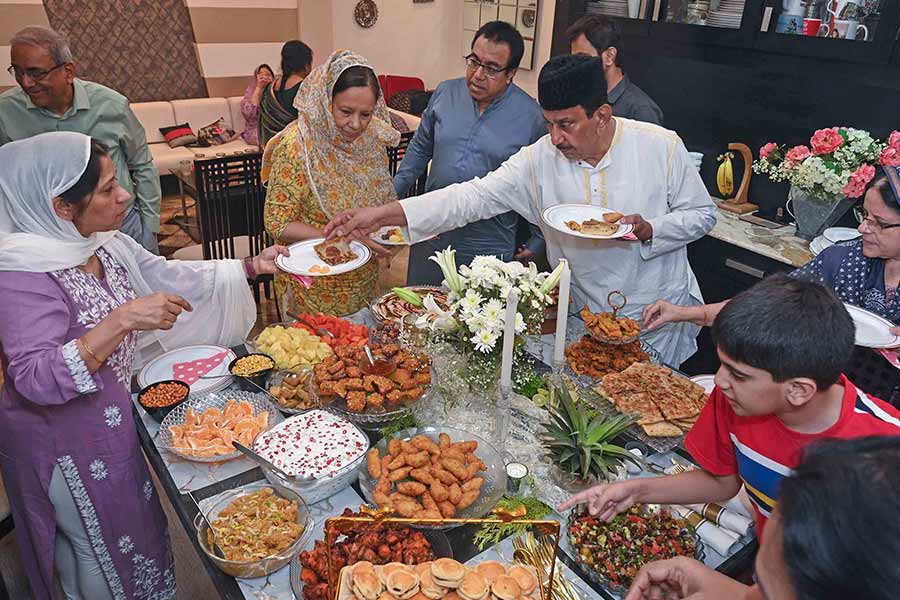Another rite has near-evaporated from public life and political convention, quite unnoticed, and become what is called the new normal. The practice of the public iftaar, or the inter-community breaking of the daily Ramzan fast at sundown, has become more a memory, less a present-day reality. The public iftaar has been allowed to lapse and become a thing of the past. There was a time, not very long ago, that the Ramzan month would overflow with iftaar invitations; public and political leaders across distinctions of caste or creed would compete to host guests and guests, in turn, would feel obliged to float from one iftaar to another on the same evening. Iftaars were a joyous confluence that celebrated India’s treasured ethos of plurality and secularism. Iftaars were more than just an occasion to end the daily fast Muslims keep during the holy month of Ramzan; they represented a cultural rite of commemoration across faiths and ideologies. It was, in fact, a uniquely Indian rite; as many Hindus would host public iftaars as Muslims.
Jawaharlal Nehru, India’s first prime minister, was, in all likelihood, the most prominent Indian leader to have initiated the tradition post-Independence. It was an act of demonstrating social camaraderie with India’s largest minority, emphasising India’s diversity and interfaith traditions. India was newly independent. It was also newly partitioned, a bitter and bloodied divide along religious lines that sundered the subcontinent, created Pakistan and, yet, left the majority of Muslims on the mainland investing faith in the pledge of a secular nation. At the time Nehru began to host public iftaars as prime minister of India, it would also have been an essential and demonstrable act of succour and security for the minority. Public iftaars survived Nehru and survived well. They actually flourished and became a political and public fashion. The most bitter foes would find on the iftaar stage an occasion to convene under a convivial canopy. What has happened to the heritage of the iftaar is nothing short of unfortunate. The convention has been pointedly shunned by the authors of ‘New India’, public men who would earlier rejoice in hosting iftaar soirees have been proactively discouraged, the vibrant air of inter-community concord has been wiped off Ramzan evenings. What was a bridge is fast gaining the shape of another divide, and that, bluntly put, is no good.









